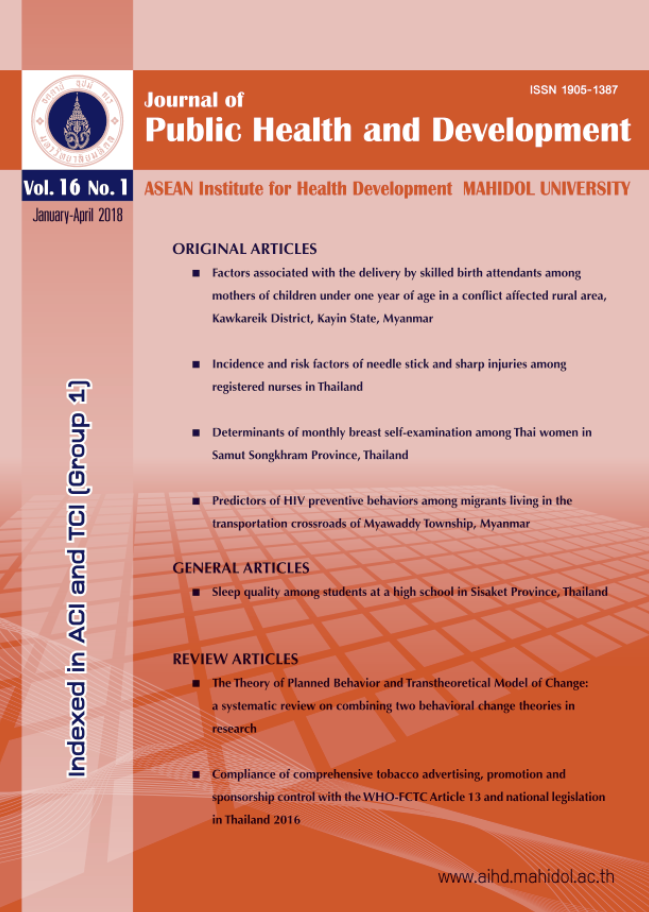Postnatal care service utilization and its determinants in Ramechhap district, Nepal: A community-based cross-sectional study
Main Article Content
Abstract
Nepal is one of the 10 countries worldwide that have reduced maternal mortality rate during 1990-2013 by 75% due to programs aiming to improve utilization of maternal care services. Nevertheless, the national utilization rate of postnatal care is very low as only half of women uptaking postnatal care services at least one time within 42 days after delivery. Therefore, this study was to identify factors affecting postnatal care utilization in Ramechhap district, Nepal, where is one of the districts with lower postnatal care rate.
A community-based cross-sectional study was conducted from March to April 2017. A two-stage cluster sampling technique was used to draw a sample of 380 mothers who gave birth in the last 1 year from four village development committees. Descriptive statistics, Chi-square test and multiple logistic regression were used to determine the predictors of postnatal care uptake.
This study showed utilization of postnatal care services at least one time within 42 days after delivery was only 28.4%. Among predisposing factors, mother’s age < 30 (Adj OR=3.35, 95% CI=1.48-7.60), higher husband’s education (Adj OR=3.42, 95% CI=1.53-7.68), husband’s occupation like officers (Adj OR=2.60, 95% CI=1.21–5.98), nuclear family (Adj OR=3.03, 95% CI=1.40-6.56), and higher level of awareness on postnatal complication (Adj OR=7.23, 95% CI=3.33-15.67). Among enabling factors, experience of antenatal care (Adj OR= 4.47, 95% CI=2.12-9.41), satisfactions to quality of health services (Adj OR=3.01, 95% CI=1.38-6.54), longer spending time for travel and waiting for postnatal care (Adj OR=8.48, 95% CI=3.66-19.68) and among need factors, postpartum depression of mothers (Adj OR=4.13, 95% CI=1.37-12.43) were significantly associated with postnatal care services uptake.
Postnatal care service use was relatively low in the district. Raising awareness on postpartum complications and importance of postnatal care service, and strengthening the capacity of health facilities and outreach clinics should be promoted for improving postnatal healthcare service uptake.


